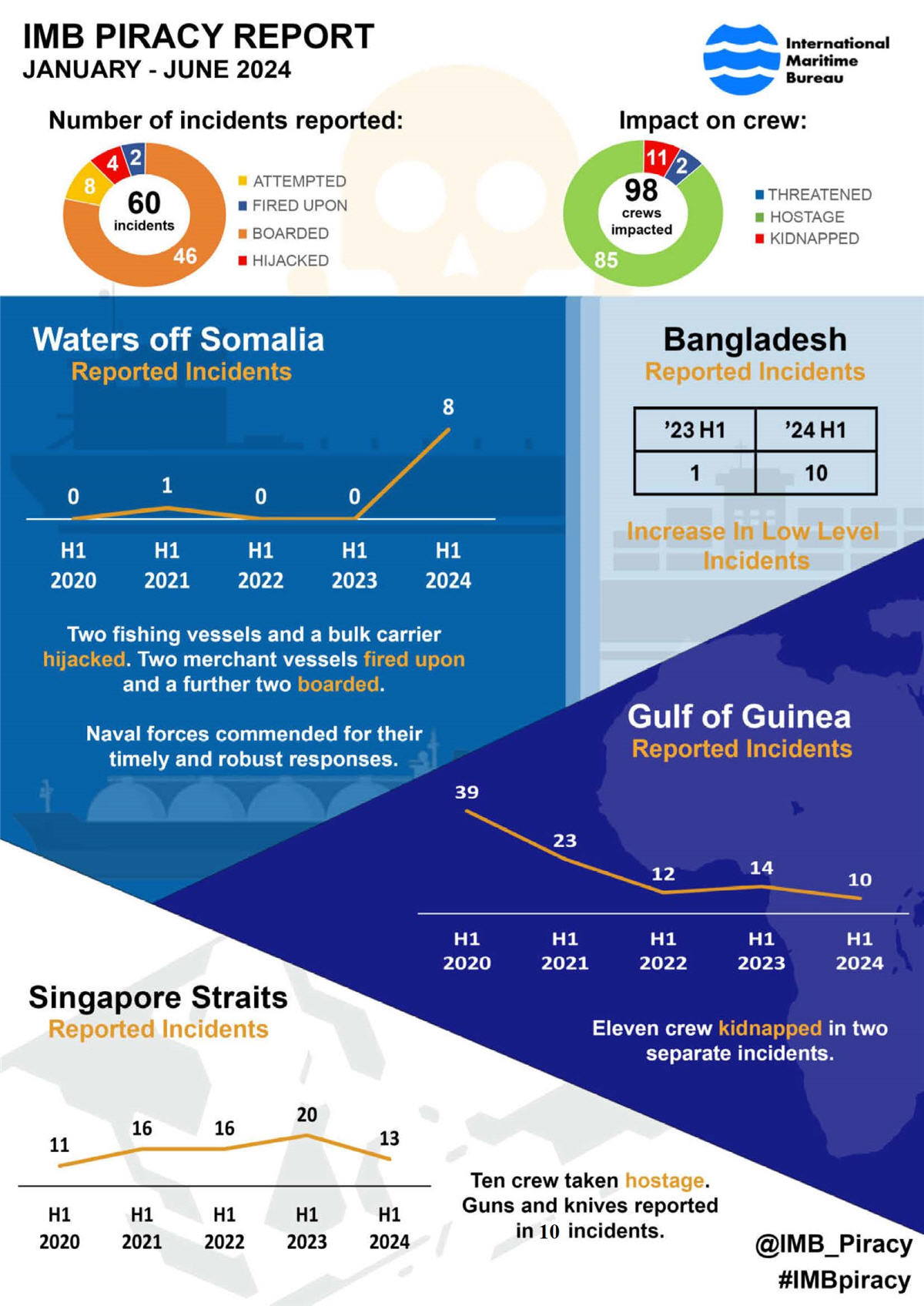As global trade continues to rely heavily on maritime routes, the security of these waterways remains a critical concern. The mid-2024 reports on maritime security from the International Maritime Bureau's Piracy Reporting Centre (IMB PRC) and the Regional Cooperation Agreement on Combating Piracy and Armed Robbery against Ships in Asia Information Sharing Centre (ReCAAP ISC) present a nuanced picture of global piracy trends. While the overall number of reported incidents has decreased, several concerning developments have emerged.
The maritime security landscape in the first half of 2024 presents a complex picture. While the overall number of reported piracy and armed robbery incidents decreased slightly compared to the same period in 2023, there has been a concerning rise in violence against crew members. The IMB PRC noted a significant increase in crew kidnappings, with 85 individuals taken hostage compared to 36 in the previous year.
This trend is corroborated by ReCAAP ISC - their half-year report indicates a 16% reduction in total incidents in Asia, but a rise in the severity of these occurrences. Although many incidents in Asian waters are characterised as low-level opportunistic thefts, there is a troubling prevalence of perpetrators armed with knives and other threatening objects.
As 2024 progresses, several piracy trends have emerged. Somali piracy remains a significant concern, with eight incidents reported to the IMB PRC, including three hijackings. The agency warns that Somali pirates have demonstrated the ability to target vessels up to 1,000 nautical miles from the Somali coastline.
In the Gulf of Guinea, there has been a slight decrease in reported incidents. However, the region continues to be a hotspot for crew safety concerns, accounting for all 11 crew kidnappings globally in the first half of 2024 and 21 hostage-taking incidents.
The Singapore and Malacca Straits (SOMS) have seen a 49% decrease in reported incidents according to ReCAAP figures. Despite this improvement, SOMS remains one of the world's primary piracy hotspots, with large vessels, particularly bulk carriers, being targeted during transit.
Notably, both Bangladesh and Indonesia have recorded their highest number of incidents in a first half-year period in recent memory. These incidents predominantly involved vessels at ports or anchorages, with large commercial ships being the primary targets.
Fundamental best practices
Members are recommended to closely monitor potential risks through the websites of ReCAAP ISC and IMB Piracy Reporting Centre, as well as via the local agents and regional authorities.
A risk assessment should be conducted, and the relevant preventive measures adopted, following available industry guidelines, such as the following:
• Regional Guide to Counter Piracy and Armed Robbery Against Ships in Asia
• Global Counter Piracy Guidance for Companies, Masters and Seafarers

IMB Piracy Report Trends January-June 2024
